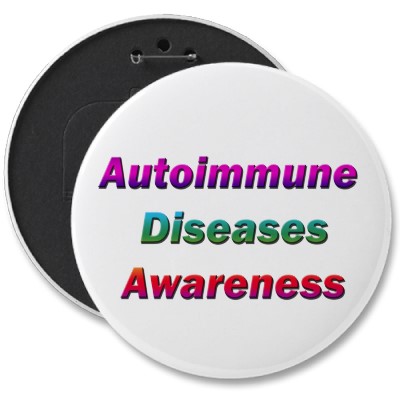
Autoimmune disease awareness
On PatientTalk.Org we run an occasional series of blogs which try to bust the jargon used in the healthcare and medical industries. In today’s blog we are turning our attention to autoimmune conditions.
Autoimmune conditions are, to say the least, very unpleasant. Importantly they do not just appear in humans but in fact, in most organisms. Simply put autoimmune conditions are when the body fails to recognise one of its constituent organs as part of itself. This leads the immune system to, in effect; attack its own body or part of the body. This will often “present” as inflammation.
There are two main types of autoimmune disease:-
a) Systemic. This is where the sufferer’s immune system attacks the whole body. Lupus can be an example of this. To find out more about Lupus please see our awareness blog https://patienttalk.org/?p=270.
b) Localised. This is typically when an attack is made on a specific organ of the body. In the case of Celiac disease (https://patienttalk.org/?p=349) which affects the gastrointestinal organs or tissue.
Typical symptoms and signs of an autoimmune disease can include:-
1) Pain in either joints or muscles.
2) Fatigue.
3) Brain fog or cognitive impairment.
4) Numbness in the body’s extremities such as hands or feet.
5) Reoccurring rashes or hives.
Obviously if you suffer from any of these symptoms it is vital you see a doctor as soon as you can.
Interestingly autoimmune conditions occur more often in women than men. Indeed it has been estimated at up to 50 million Americans suffer from one kind of autoimmune condition or another.
There is, as of yet, no full list of autoimmune conditions but certainly they run into hundreds. These include multiple sclerosis (https://patienttalk.org/?tag=multiple-sclerosis), rheumatoid arthritis (https://patienttalk.org/?tag=rheumatoid-arthritis), psoriasis, Hashimoto’s thyroiditis, Graves’ disease, idiopathic thrombocytopenic purpura, and Addison’s disease.
Do you suffer from an autoimmune condition? If so it would be great to hear your story! You might want to consider some of the following questions:-
a) What autoimmune condition have you been diagnosed with?
b) What were your original symptoms?
c) What treatments did you use? E.g. Steroids. How effective were these treatments?
d) What one piece of advice would you give to somebody who has just been diagnosed with an autoimmune condition?
Please feel free to tell your story in the comments box below.
Many thanks in advance.




